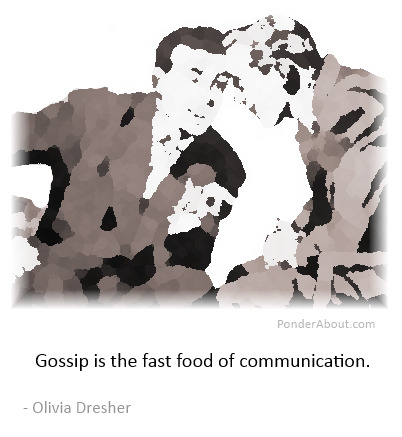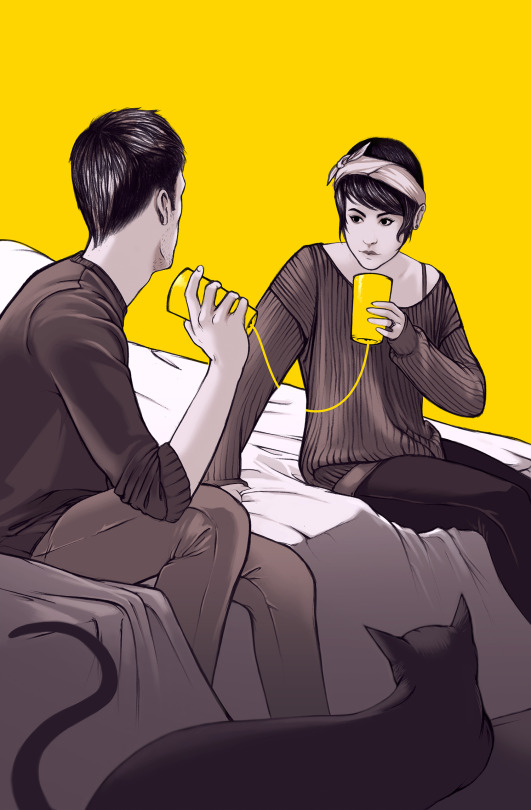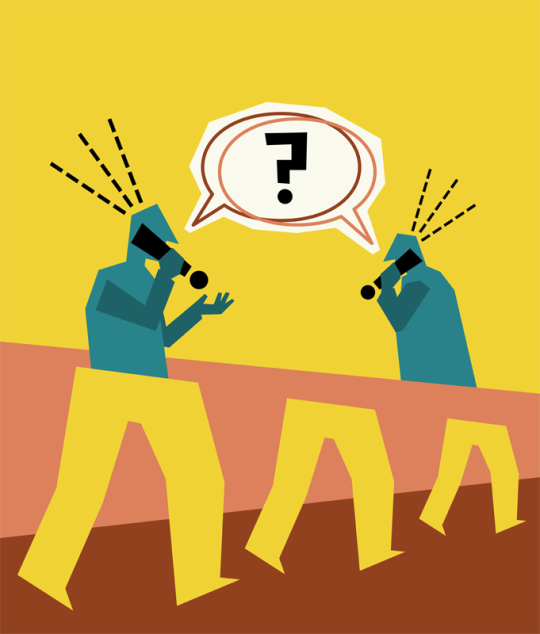Text
Social Media - The expansion through Asia and specifically, China.
I find this very interesting. I'm sure most of us would agree that social media allows us some freedom, right? We can question authorities and criticise things and let our voices be heard... on a global scale too, someone in Canada can listen to the complaints of a 15 year old Australian for instance. Although, this has been achieved by the allowance by the government quite ironically. In China, the government cuts off the chinese citizen's internet reach, so that only Chinese websites may be viewed and many global internet media moguls have been blocked; no Facebook, no Twitter.
My intial reaction was that wow, the Chinese government really does put a choke hold on freedom and access to information and news for their people, and that may be true for an interesting array of reasons (which would most likely lead me off topic). Although, the citizens of China are seemingly adaptive and bright...
I find it quite ironic that when China's social media systems have been heavily regulated, the nation (particularly the youth) has become united. Secret languages and words have been developed to avoid "internet police" that the Chinese government employ to take down things they don't agree with. They gather together and form a place to hang around. Chinese copies of twitter and facebook have been created, through brands like Tencent. Tencent, a mass media company as sky rocketed and has created an empire in China, and only in China... although, still much more bigger revenue wise and user wise than Facebook and Twitter, combined.
The main thing I loved about learning more about this, is the concept I briefly touched on above... the unity that came out of this ironically. As the government conjurs up ways to hold back the citizens of their nation, they think of ways to get around it, whether its a proxy or a language, you best believe the people of China will subtly and sometimes not-so-subtly rebel against major authorities, as they know they deserve the same access to information as everyone else. Good luck to Chinese citizens and best of luck.
It was great to study this as the last topic of Digital Communities, as it showed that after all the theory, history and principles of online culture and social media, we're all just trying to stay connected and we should recognise that and treat each other with respect, despite all the research we conduct online and the other benefits, I guess sometimes we just want to be with the ones we love most of the time, right?
0 notes
Text
Social gaming, sport and the impact that gaming has on society.
Gaming is becoming massive and its attracting crowds just like sports events are. The gaming community is a passionate one and people love participating in it, for the love of the game , for the chance to win and also to potentially socialise, as the opportunity to talk to people is there.
32 million people watched the "e-sports" final, which is incredible. Games seemingly involve the same characteristics as sports. Games have players, something to gain/lose, use of mental capacity, passion and determination. What will happen in the near future? Because no one can deny games are making a killing... they're making money, they're attracting audiences, they're sponsored and they're valued to so many people.
I believe that what held back games previously before it continued developing into what it is now, was outdated minds and prejudice. Many people would argue due to the non-physical nature of gaming , it shouldn't be in the same category, but what about the skill levels? the focus? and the training gamers go through to compete on a WORLD scale, for major cash.
I think people need to get over the non-physical aspect, just because people don't have a 'built' physique running around and essentially, chasing a ball, does NOT mean it isn't a sport, and it isn't worthy of attention and success. Outdated minds need to move forward in their criteria of what constitutes something worthy of watching, because what may be great to watch for you, isn't always going to be the world's view.
0 notes
Photo
quite an interesting take on what the media has done, some food for thought?
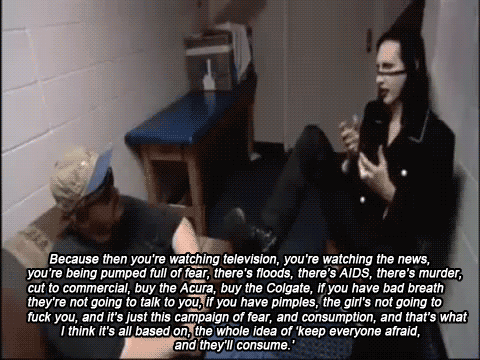
similar posts here
115 notes
·
View notes
Text
The new camera consciousness : who's watching?
These days there is a new type of paranoia and tension that is unique to our generation. People have more everyday power in one aspect, as cameras are often now on mobile phones to complement/enhance all of our social media networks such as Facebook, Twitter, Snapchat and so on.
Is it good that potentially all of us with a smart phone can document and take photos of whatever we want? In a way, I think it's great people have cameras in their pockets which i'll touch on further down in this post.
A lot of negative talk has been spoken for obvious reasons. Embarrassing photos, bullying opportunities, stalking, sexting... if you think of these words, you question the positive side of the new camera consciousness we now have.
Although Instagram may suggest a narcissistic society with most tags reflecting a very big interest in one's self, with things like #selfie or #me, I feel it's deeper than that.
Instagram and the consciousness that has now developed because of cameras can be positive. I mean, people can express themselves now through images that may be frowned upon in mainstream society. Think about it, as much as people like to put up a front on Instagram and act like something they're not, there ARE cases of people putting up the REAL person they are, on Instagram, the one they can't show in real life for any reason.
Honestly, a lot of what I put on the internet under my own name, is what I like and you could probably very much predict my hobbies or interests, or even music taste... through the photos i've posted, or the photos I reblog, they're all a part of me in some regard.
Not everyone takes this personal view and use to Instagram, tumblr or photos in general and that's where things are misconstrued. There definitely are people out there that are nothing like what they like to portray themselves as online. People are more confident online, even seemingly "prettier" to some people, but we must not be ignorant to the fact that images can do amazing things to people like inspire and motivate and even express.
Just as easily as people can fake an identity online, they can show their real one.
The new age of camera consciousness has shown benefits anyway, through amateur journalism covering major stories and giving us images that inform. For example, yesterday James Packer, a big media conglomerate, got into a fight and someone was there to get a photo and in turn, it was made into a major news story... it made headlines. It informed the public, whether or not it's a great, fun, exciting or inspiring story, it is one that obviously the public is interested in somewhat.
However, there is countless amounts of conspiracy theories of governments spying on us, monitoring us and compromising our privacy. For most of these theories, I am skeptical but I definitely do not rule them out, who can really guarantee that the government doesn't watch us all day? The government?
0 notes
Text
Crowd sourcing, crisis and communication. It's changing; welcome to social media.
There is no doubt that as a direct result of social media platforms such as twitter, facebook, tumblr, etc... we now have information right in front of us, through our phones and laptops. Our mobile devices which were once used to merely call a person, can now tell us if people have died across the world, far away from our home, its an interesting thought.
Everybody has seen it, from Kony 2012, to the Queensland floods and the Victorian bushfires... it helps us unite. Recently, a case arose of a family of kids that had lost both their parents (this isn't exactly an example of a crisis but an example of the power social media holds) and people had spread the word to donate to them, to supply them with the finances to manage their own life without their parents, the result was incredible and in the end, the total donations came to over 1 million. Kids became millionaires literally in a couple days. Word of mouth is great, but internet attention is even greater.
When things go wrong, and people successfully prove that there is a crisis occurring, its amazing the power society can hold and the influence they can make. It's not a rare thing that when natural disasters occurs, immediately online fundraisers and donation sites are set up. We have to consider that it is more than simply spreading images of the disaster and persuading individuals to give money. It is also much more convenient and easier for people to transfer funds. Honestly, it is hard to admit the truth that, even when people are in need, we just don't have the time always to go out of our way to donate. We may do it sometimes and be very generous, but if you want a substantial more amount of money, you must make it convenient for people. So many people are based on the internet, for recreation, work, or other reasons... and if you make a fundraiser/donation website online, you'd be surprised how much it could potentially increase awareness as its right in front of people as part of their everyday routine.
To close it off, I feel this is very self-explanatory. However, it's a beautiful thing (social media) and its helped us achieve a lot and spread awareness about many things. I think of VICE and their documentaries exposing corrupt governments and worldwide issues that haven't been broadcasted, and despite not being a crisis, the REACH some people can get is amazing. Vice went from an online documentary series to a show on foxtel and they also have their on magazine.
Social media can very much equal power, and when power is put in the right hands, it helps people in moments of crisis and desperation.
0 notes
Text
Trolling - Often seen as straight forward, but is it?
Trolling is an interesting thing as it is such a big issue that has been around for a while now, and yet, no one really has the answer.
The lines are blurred. Honestly sometimes its hard to talk to your mates, or colleagues about the difference between 'trolling' or cyber bullying. To me, I think of trolling as acting like the 'annoying guy'. A 'troll' thrives on saying exactly what they know will spark up a reaction from another person, whether it be sadness, aggression and so on. They just want a reaction. Trolls like being the dude who gets the most attention, whether its through being racist, homophobic, misogynistic and so forth.
However bullies isolate one person, this includes cyber-based bullies too. They will edit photos, spread them, talk about them, make up rumours etc, mostly just to get a laugh but at someone's expense.
Now look, my take on cyber-bullying is common, it's hard to put the blame on anyone else but the bully (which isn't the case in regards to trolling in my opinion). I believe everyone should be critical about who they friend on Facebook and who they associate with online anyway. The internet can be a dangerous place if you go down certain paths and people can use it negatively, these factors are less influential when it comes to bullies as they usually have a specific audience and motive.
But, back to trolling. To me, this is a very avoidable thing. I mean look, most of us know the feeling of posting something you like, or posting even your thoughts, and getting someone making a sarcastic or condescending remark. Now, this is where minds differ and people think differently, who's fault is it that a sarcastic remark was said? and who has the responsibility? I'm not going to sit here and say the person who posts is asking for it, they're not. Everyone has the right to free speech and if you want to say something, say it and if you find yourself often coming in contact with 'trolls' then delete them, block them, let it go. We cannot always put the blame on these attention-seeking individuals.
Everyone knows, no matter where you go, what you do, how successful you are, how right you are, how much sense you think you are making, there will always be someone there to be a critic, someone there that will tell you 'no, don't say that'. Hopefully it is obvious where i'm leading with my opinion on this...
I feel that we (all adults and educated teenagers) have the responsibility to speak to the younger generations discovering and using the internet, and give them some life experience and some advice. Wherever we go, we will run into someone who might enjoy making things uncomfortable for us. Trolls are making headlines, paranoid/worried parents are going crazy, high schools don't know what to do, governments are confused. Well maybe, its us who need to do something, rather than just think of ways to get rid of these people who love to hate. Maybe we should just learn to ignore, block, and not get affected by obviously overly sarcastic comments. I know people are sensitive, and i know this whole solution i'm proposing or talking about is open to criticism, but just maybe, we have to toughen up. Maybe we have to learn to say, well who really cares?!
0 notes
Text
Liking/sharing - not entirely enough to deem someone an activist, but potentially beneficial.
"There is now unprecedented opportunities for expression and interaction, especially among activists, artists and other political and cultural groups..." (Leah Lievrouw 2011, Alternative & Activist Media: p2)
Unprecedented ways include merely recognising something online. I mean, sure... we all hate it when someone talks about being so involved with an issue after just liking something, and that isn't wrong... I mean you can't say you're a dedicated activist just from sharing and passing on knowledge. Although it does serve a purpose in my opinion.
Personally, before getting into this subject, I was one of many who believed in this concept of "clicktivism" and that it's just a way of perhaps making people feel good or like they're doing something but honestly, if people didn't like and share... with the nature of Facebook, not many would see anything.
I mean, clicktivism perhaps could be a worth-while and accurate concept if Facebook wasn't set up the way it was. For example someone you're friends with on Facebook likes or comments for whatever reason on a post, and chances are one of your friends or yourself will see it and it may potentially and eventually reach you and now you are aware of something you weren't a minute ago.
The power of this thumb, is quite underrated.

Most of us (being active on social media) have seen posts/pages with over a million likes.
This links into activism because if 1 million like it, more people see it and even if 500,000 of those people are inactive and merely liking just to acknowledge that the problem is there... aren't chances of an individual actually doing something about it, growing? as more people continue to like, share, expose and ultimately, raise awareness.
Speaking from personal experience, I like many magazines, artists and art pages on Facebook so I see a lot of original content... I can't say the same for the content I gather from my friends though. There has been a gradual shift from the initial "making a status" phase and contributing your own content to simply liking memes, funny images, worldwide issues/trends, cool photos of landscapes etc... this has dominated my news feed and its safe to say that what i see on a day to day basis, is because someone liked it.
0 notes
Text
Long lasting effect of online politics
Social media has taken a big influence on politics in recent years. Some argue the internet pushed Obama's support groups to new heights and in turn, was an integral part of his appointment to president of the United States. I suppose this encompasses many themes of activism and revolution, if the internet was proven to really have that big of an influence on the voting. Although, this opens up a new topic of how politicians use social media. It is obvious polticians have reached out to platforms such as Twitter, Facebook and other websites to reach a mass audience and spread their campaigns, objectives and proposals. The online factor of these accounts (twitter, facebook) seem to provide a long-lasting effect. Take Kevin Rudd, for example, he's famous outtakes from addressing the Australian public, saw him swearing and showing a side of the former PM we've never seen before. The video was out there, still is out there and will remain available to the world on the internet for as long as possible and that still may influence people's thoughts on Kevin Rudd. The internet has potential to stain someone's personality or also credit it enormously, through perhaps capturing footage of an individual doing good, WITHOUT a news crew there filming...however, at the same time it can ruin someone's reputation just as quick. Although, despite the good nature of politicians opening up online accounts which one can say is good as they have direct contact with the Australian public and can respond/communicate with voters... it is also bittersweet. Politicians can potentially put on a facade or hire a team to run their blog, twitter, or facebook to put on a front to gain followers unethically. Some food for thought and some benefits and downfalls to think about in regards to politicians turning to online life.
0 notes
Photo

You Can’t Tweet This
As Turkey’s government grapples with the dissemination of information in the 21st century, are elections a sign of hope?
>Urban Times Reports
Follow us
3 notes
·
View notes
Photo
Showing the progression of communication, prior to digitilisation

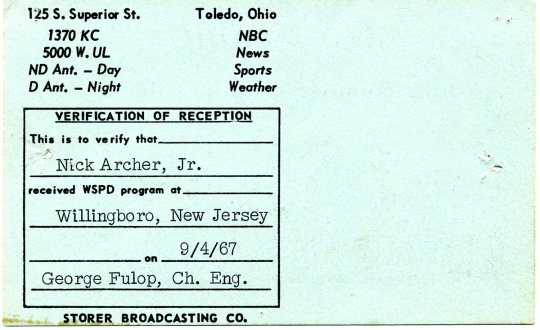
Verification Of Reception
11 notes
·
View notes
Text
'Publics can be reactors, (re)makers and (re)distributors, engaging in shared culture and knowledge through discourse and social exchange as well as through acts of media reception.’ (Mizuko Ito, 2008: 2‐3, 6). In regards to tumblr, I believe it's important to recognise that in some way or another, we are all fitting into this definition of “publics” according to Ito (2008 2-3, 6). We are all creating culture, whether we are the original producer or an individual who is merely reblogging and passing on content. When popular jokes (like memes) or fashion trends come to surface and rise in popularity it is because of us, the publics have the power to give rise to just about anything, through social media such as tumblr which delegates that power.
0 notes
Photo

New Post has been published on http://moderngentz.com/technology-concept-infographics/
Technology Concept Infographics
echnology Concept Infographics
Fully editable vector files.
Illustrator Files include :
- 4 AI Files for Illustrator 8, Illustrator 10, Illustrator CS and Illustrator CS5
- 4 EPS Files for Illustrator 8, Illustrator 10, Illustrator CS and Illustrator CS5
Fonts : Myriad Pro
CLICK HERE TO PURCHASE – $5
4 notes
·
View notes
Photo
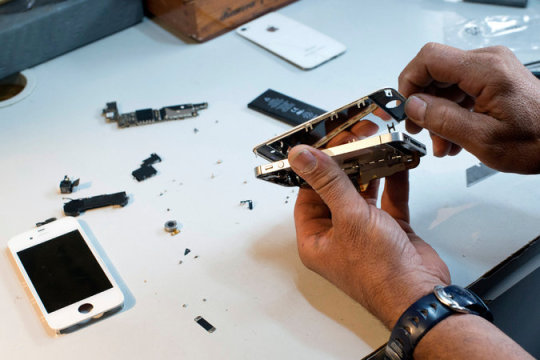
We here at Unconsumption are big fans of the idea of repairing / mending things you already own; so, naturally we love this New York Times post on “Making Our Smartphones Last Longer”:
Despite their small size, smartphones are expensive, resource-hungry goods, and they deserve a better life cycle than two years of use followed by an eternity in a forgotten desk drawer. It is possible to buy smartphones with an eye to longevity — a strategy that will save money and global resources and give you the snooty self-satisfaction of knowing you’re shunning gadget consumerism.
The main points are: Use your phone for more than two years, ideally three; when you run into trouble, try to repair, not replace it; and when you’re done with it, trade it in. When you’re looking for a new phone, don’t just consider the latest high-end devices; many people will find last year’s best phone just as useful as the newest one. You might even consider buying a used phone instead of a new one.
Sound complicated? It’s not.
Read the rest: A Wild Idea: Making Our Smartphones Last Longer - NYTimes.com
822 notes
·
View notes

